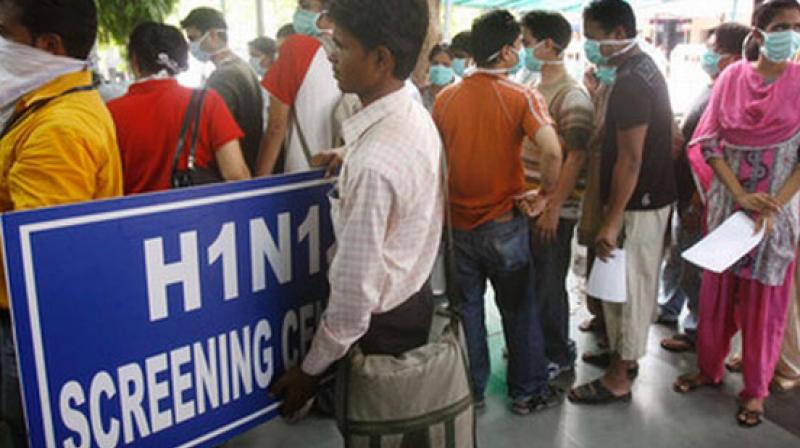Kerala: Public fleeced in the name of H1N1
Patients subjected to needless card tests.

THIRUVANANTHAPRUAM: H1N1 Nodal officer has cautioned people against private hospitals conducting needless tests in the name of H1N1 in various parts of the state. It has come to the notice of the H1N1 state nodal office here that patients were being subjected to needless card tests and rapid tests which are not required. The hospitals are reportedly charging Rs 1000 to Rs 2000 per test. The Nodal office has already issued strict warning to hospitals not to carry out such tests in the name of H1N1 treatment. The RT-PCR assay test for confirmation of H1N1 is being done free of cost in government hospitals.
The experts say card tests and rapid tests are not recommended for H1N1 and these were being done only to fleece the patients. “People are being hoodwinked in the name of treating influenza like diseases. It is a kind of racket,” said a doctor. “We have come across such reports from some parts of the state.There is no need to carry out card or rapid tests on patients coming with symtomps of influenza like illnesses,” said Dr Amar Fettle, state nodal officer of H1N1.
The RT PCR test was originally very expensive as high as Rs 10,000 in 2009 when H1N1 was first reported in the state. The cost has come down significantly because of the cheaper laboratory reagents now available in the market. In the case of samples of H1N1, H5N1, SARS, Ebola and influenza like infections the laboratory investigation mechanism is functioning quite effectively in the state.
While the samples of H1N1 are being sent to regional laboratory in Manipal, in case of huge load these are also sent to Rajiv Gandhi Centre for Biotechnology (RGCB) Thiruvanantha-puram which has highly advanced laboratories. According to experts, rail accessibility is one of the major reasons for sending bulk of samples to Manipal from many parts of the state. The cases from Idukki and Pathanamthitta, however, are being sent for laboratory investigations at National Institute of Virology (NIV ) Alappuzha. Nearly 20 to 30 samples are sent to Manipal and other Centres daily from the state. The results are received through e-mail within 24 hours and the copies are sent to the state control room and the districts concerned.
H1N1 toll remains high
While H1N1 cases have indicated a decline in the state, the number of deaths continues to be high at 66. Though the authorities claim that the cases would decline further in the coming months, the number of deaths coming close to 2015 figure of 90 is not ruled out completely at this stage. Moreover, the advisory issued by the WHO and the Union Ministry of Health had also warned warned that situation could get worse.
With majority of deaths occurring among people with diabetes and other chronic ailments, doctors have advised people having life style diseases like diabetes, blood pressure, cardiac ailments, hypertension to be extra vigilant in the event of even a mild fever. “The situation is completely under control at the moment. But we have not lowered our guard. All steps are being taken for prevention, control and treatment of the infection,” said H1N1 Nodal officer Dr Amar Fettle.
Experts say the incidence of H1N1 is likely to come down drastically in 2018 as people are expected to regain their immunity. However, the situation in 2019 could get worse as immunity would decline by then.
Meanwhile, authorities have refuted the reports of shortage of H1N1 medicines in government hospitals . “At the moment we have a stock of 3 lakh capsules of Oseltamivir. Another 1 lakh free supply has been airlifted from Centre today,’’ said a doctor. However, there are reports of shortage of medicine in private hospitals, Moreover, medical stores have also reported shortage of medicine attributing the scarcity to GST related problems. Inadequate stocks of medicines in private hospitals continue to be a problem. Despite several reminders private hospitals have not stocked up adequate medicines.

